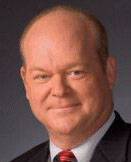Thursday, Feb. 12, 2009 | 2 a.m.

Bob Beers
The Nevada Legislature follows a tradition when it meets every two years: Cleaning up the messes it made in the previous session.
Sun coverage
This year the Legislature will likely turn back a law passed in 2007 that has the potential to throw the state’s health insurance market into flux, according to the former insurance commissioner and the office of Attorney General Catherine Cortez Masto.
The history is a little Byzantine and much of it was reported by the Sun in the fall, but it offers an interesting window to some aspects of the legislative process:
In the final days of the 2007 session, an amendment that was slipped into an insurance bill greatly benefited a company that provides payroll services and administers health benefits for a variety of employers.
Without a committee hearing or public testimony, two Republican senators added the late-hour amendment. It allowed the company, Payroll Solutions, and certain other companies to avoid the kind of state oversight, regulation and taxes that apply to health insurers throughout Nevada.
Because of the change, Payroll Solutions avoided a $1 million fine and back taxes for operating as a health insurance provider without a license, a matter still being contested in the courts.
Why did the Legislature do this?
Tough to say, but Payroll Solutions had an ally in former state Sen. Bob Beers, who had been the company’s vice president of sales until the legislative session began in early 2007.
Beers made some introductions to his old Payroll Solutions boss, after which two Senate colleagues, Sen. Warren Hardy, R-Las Vegas, and Sen. Randolph Townsend, R-Reno, moved the amendment.
Whether anyone knew it or not, the amendment had far-reaching implications, according to an internal memorandum two deputy attorneys general sent to their boss, Cortez Masto. In addition to aiding Payroll Solutions, the new language opened the door to insurance scams across the state, the memo says.
Payroll Solutions is what’s known as an “employee leasing organization.” That means companies hire Payroll Solutions to take care of their payroll, taxes, benefits administration and the like.
Payroll Solutions also began offering a self-funded health plan in 2001 to the companies for which it performed the other services.
The federal government decided in the early 1980s that it wanted help from the states in regulating this type of arrangement, which is known as a Multiple Employer Welfare Arrangement, or MEWA. The government wanted help because MEWAs are prone to fraud and insolvency.
Payroll Solutions, however, has long argued that it’s not a MEWA and thus not subject to state oversight.
The federal government and Nevada disagree with that assessment. In 2006 the state held an administrative hearing that concluded with a $1 million fine against the company and a demand for back taxes.
The company appealed to the courts, setting off a flurry of suits between the parties in state and federal courts.
As the court cases continued, Payroll Solutions decided not to take any chances. It turned to the Legislature and won language to make sure it couldn’t be regulated as a MEWA.
The principals say they don’t remember much about how the amendment became law, which is understandable given the flurry of activity surrounding the end of the biennial 120-day session.
State officials tell another story, however, according to documents obtained by the Sun last year from a third party.
The amendment was added “surreptitiously” and “most probably passed without full knowledge of the facts or implications,” said the internal memorandum to Cortez Masto from deputy attorneys general Shane Chesney and Joanna Grigoriev.
State officials are concerned the new law will have fly-by-night companies seeking to avoid regulation by the state insurance commissioner.
The memo from Chesney and Grigoriev warns that the 2007 law could allow companies to operate unmoored from state insurance rules that, for instance, mandate coverage of cancer screenings and require companies to contribute to a fund that would pay claims if they go broke.
Moreover, Nevada collects roughly $250 million in insurance premium taxes every year, which would be slashed if insurance companies escape Nevada’s purview.
If Payroll Solutions’ legal argument holds up in court, the implications could be profound, the state’s insurance commissioner at the time, Alice Molasky-Arman, wrote to Cortez Masto.
Nevada will become a haven for shady operators, Molasky-Arman wrote. The amendment “will devastate the health insurance market” and “destroy Nevada’s reputation as a strong, fair regulatory environment,” she wrote.
In a second advisory opinion, the federal Labor Department said the amendment passed in 2007 was an illegal usurpation of federal law.
Now Democrats control the Senate, and they’ve introduced legislation to undo the language that benefited Payroll Solutions. It will likely become law.
Howard Winters, chief executive of Payroll Solutions, released a statement saying the new legislation would have no effect on the ongoing litigation: “It is Payroll Solutions’ opinion that the proposed legislation is designed to influence the Nevada Supreme Court’s decision on the appeal filed by the State. However, Payroll Solutions is confident that the proposed legislation will have no impact or change to the favorable ruling that Payroll Solutions received in District Court.”
Beers lost a tough reelection fight in November and is now an accountant in private practice. He reiterated his view that it is unfair that companies like Payroll Solutions should face state as well as federal regulation.

Join the Discussion:
Check this out for a full explanation of our conversion to the LiveFyre commenting system and instructions on how to sign up for an account.
Full comments policy